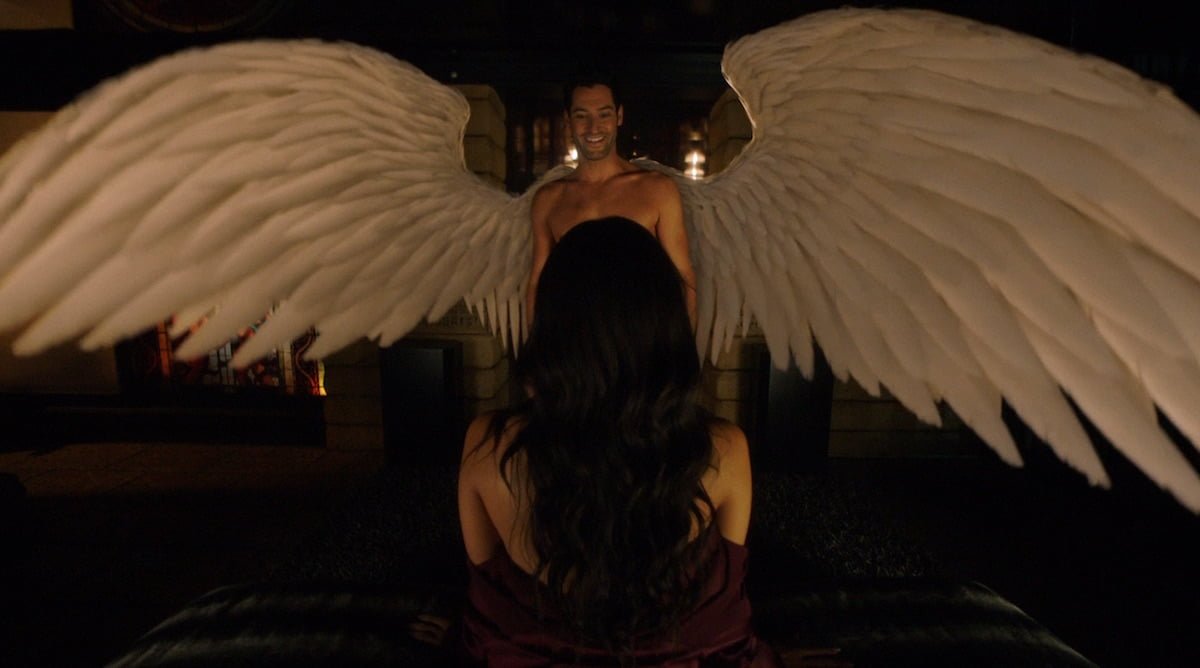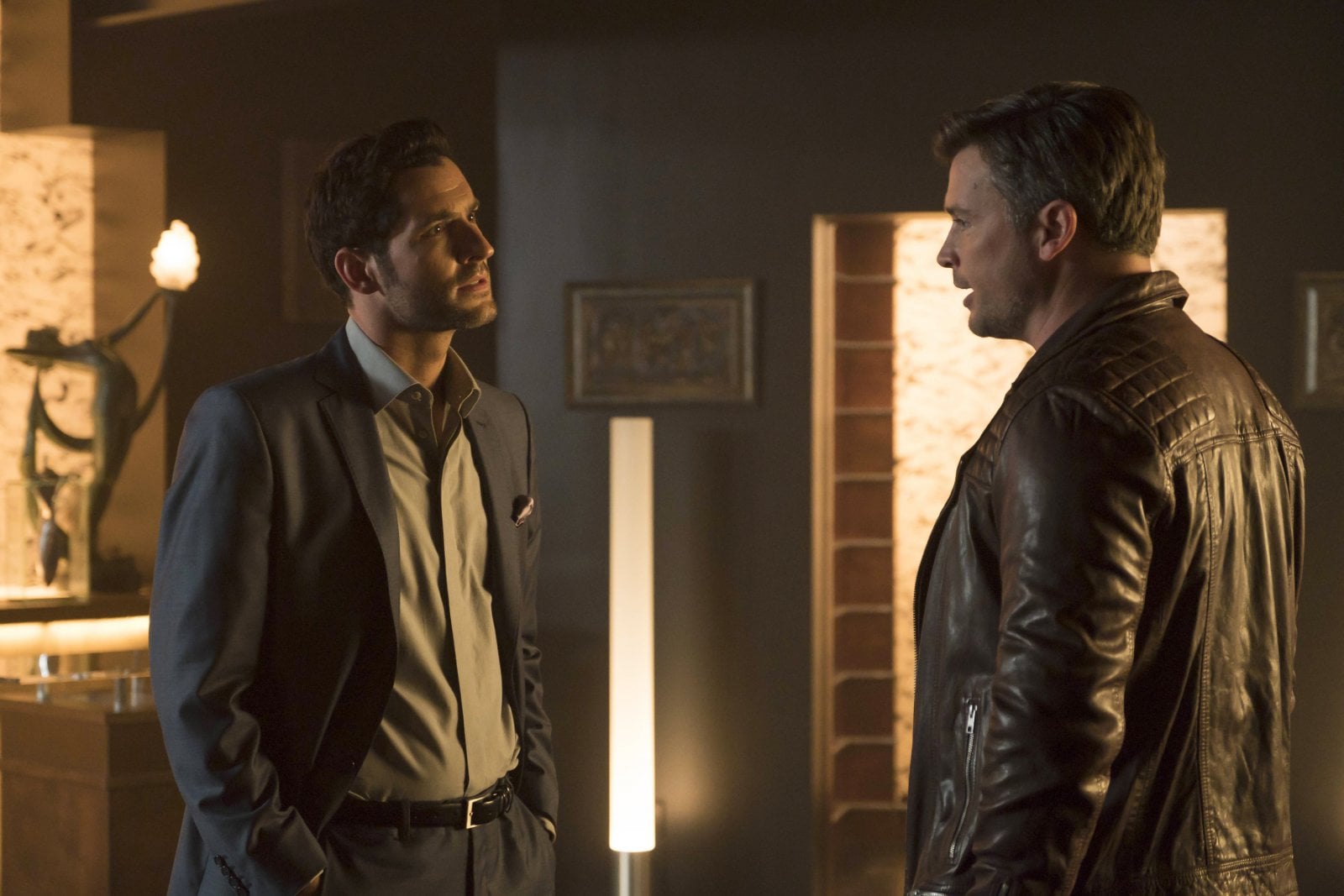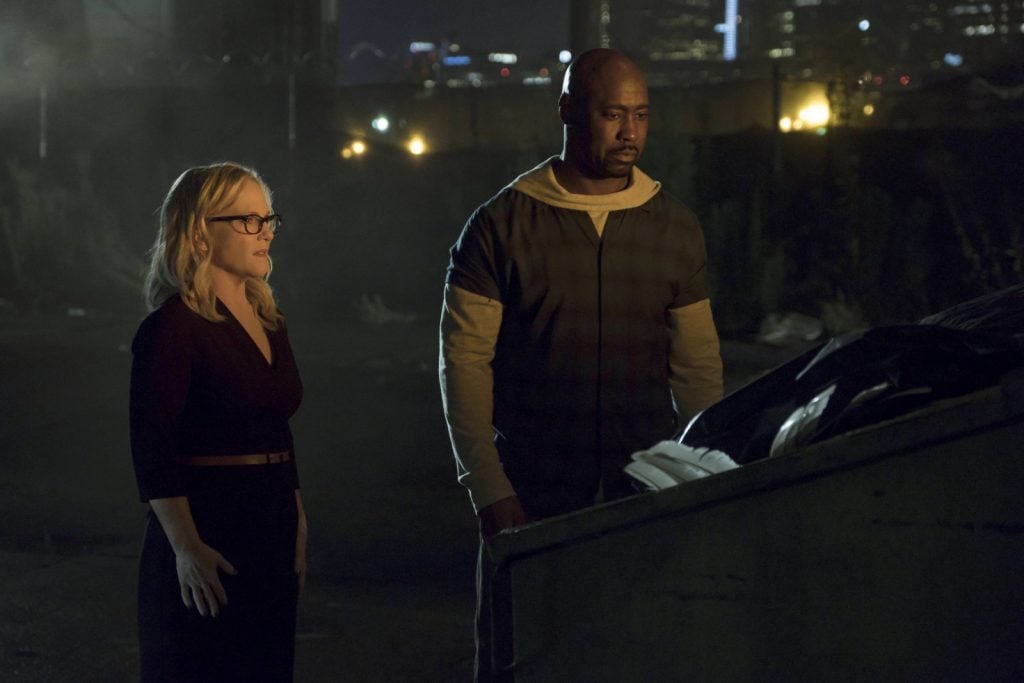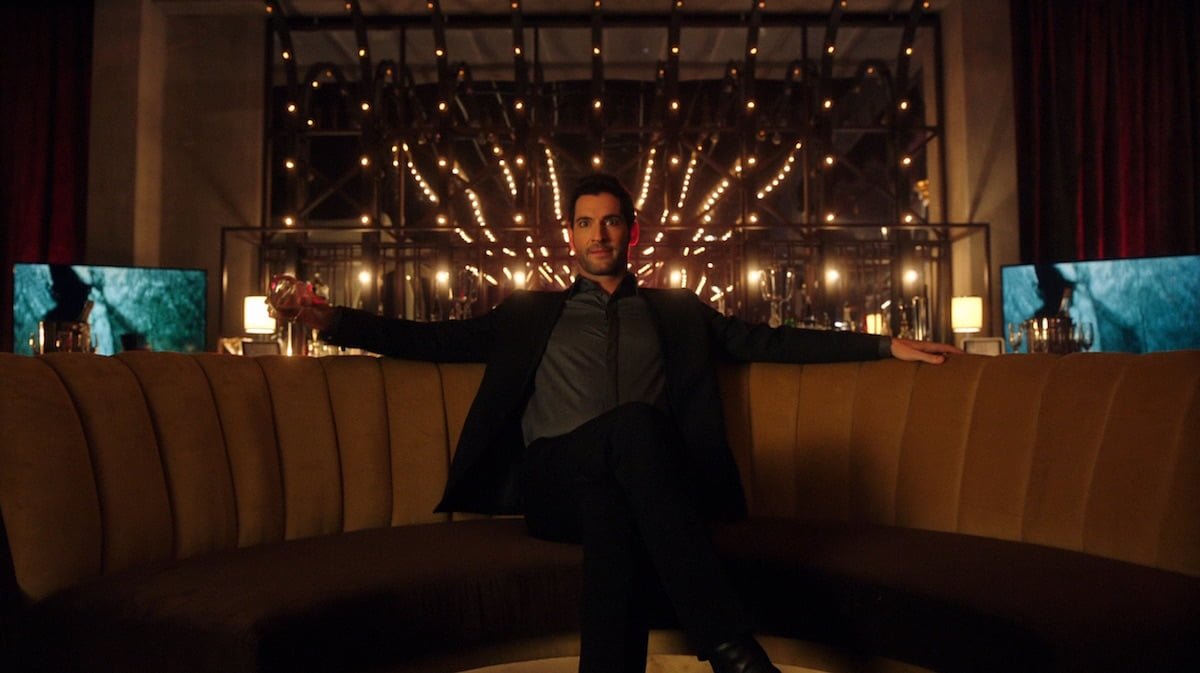
“It’s easy to let external factors define us; especially the traumatic ones. But only if we let them.”
It is often said that those who do not learn from their mistakes are doomed to repeat them. This occurs as much in the entertainment world as it does in real-life. As I thought more about last week’s premiere of Lucifer, I saw the same mistakes that hounded our horned anti-hero in the back half of Season Two slither into the narrative, but ‘The One with the Baby Carrot’ just may offer us a much needed jumpstart to the, at times, overly petulant Prince of Darkness.

From the beginning, one of the things that have made Lucifer such a brilliant show has been the implications of the Morningstar’s psychological state as evaluated by Dr. Linda. Temperamental and impulsive, Lucifer has the nearly supernatural ability to take what someone says and, no matter how damning it comes across regarding his actions, turn said observation on its head into his favor. No one has experienced this “I’m the victim in all this” attitude more than our good doctor. While lacking in the premiere, Lucifer has two particularly poignant talks with his psychiatrist that are brilliantly set up as episode bookends. While the latter possibly hints at Lucifer learning from those around him that that, sometimes to move forward, you may have to go back, the former is much more overt in how it tackles his initial state of mind.
Though we saw it occur once in the premiere, the return of Lucifer’s wings is so much more than a mild inconvenience to the banished angel. Interrupting a potential night of fireworks, he sets about lopping his feathers off in a bout of self-mutilation that truly shines a light on the fact that, no matter the pain it causes him, Lucifer Morningstar refuses to let his father (for God, according to Lucifer, has to be behind any- and everything that causes him distress) win. It’s not until Amenadiel, still wingless and powerless, identifies the cleanup of his brother’s bodily harm as his own potential test that we understand the depth of Lucifer’s wounds. His actions are a perfect example of cutting your nose off to spite your face. To him, there is nothing good that can come about to having wings, a diametrically opposing viewpoint from Amenadiel’s desire to have his angelic-hood returned.

And while we’re on the subject of Amenadiel, we’re once again reminded that this is ever the dutiful son. One who, despite the pain Lucifer’s cavalier dismissal of such a gift may cause him, he still is up to the task. That doesn’t mean Amenadiel faces things with a stiff-upper lip. The hurt is carved within his words, his actions and, like she has been there for Lucifer, Dr. Linda sees it all first-hand. “We all have pain that we hide,” he tells her at one point, “[pain] that we’re just not ready to share with the world.” At one point, as the dumpster fire of wings rages in the background, Amenadiel’s anger hits its highest point…until he comes to grips with the truth about this test from On High. “My test,” he realizes, “is Lucifer. It’s always been Lucifer.”
But of course, the supernatural is only a single aspect to any Lucifer story. And like many others, the human world procedural parallels the supernatural story flow. This time it’s about the death of a comedian and a stolen life. I’m not sure if the story of Bobby Lowe and the deceased comic, JD Woodstock, would have been interesting in and of itself, but paired with the narrative of Lucifer and Amenadiel, it works. The biggest question we’re often at a loss to answer is “who am I?” More to the point, what happens when someone steals your identity, whether it be in a real sense (identity theft) or from a more psychological aspect. Loss of one’s self—as Amenadiel has shown—can be crippling, but how much we allow such things to hamper us may be the one thing we actually have control of. In this case, it’s the murderer Sheila—set on maintaining her gig as warm-up comedienne for the big hit Bobby Lowe (who coincidentally hates the life he lives) who offers a very interesting take on identity, one he brings to Dr. Linda:

“It’s not about the idea, it’s about the execution.” Not only does he decide that he can ignore the wings, but also that it doesn’t matter if the Sinnerman is still out there, stealing his shtick of handing out favors, he is Lucifer ‘bloody’ Morningstar after all. He invented the idea of giving out favors, it’s about time he gets back to what he does best.
Sure, he may be ignoring aspects of normal growth but at least for now Lucifer’s ready to move forward. So what if he has to take a step back to do it…it’s just more fun for us.
Post Script
- While overall a powerful episode, it wasn’t without its faults, chief among them Chloe’s intimidated behavior in the presence of Lt. Pierce. While the writers pass it off as her making a good impression or showing how uncomfortable she is around the Lt, it undermines the strength they’ve attempted to build with her over the first two seasons. Add to that the artificial ways they use to keep her from discovering the truth about Lucifer and I’m starting to lose interest in any potential spots on the Lucifer/Chloe train.
- To the surprise of no one, turns out that Lt. Pierce has his own band of skeletons hiding in his closet. Of course his “I know who you are, Lucifer” was too good to be true, the fact that he is trusting Lucifer in a covert collab to track down the Sinnerman and, at the same time, excise Chloe from the two-man task force due to Trixie shows that, despite his gruff attitude and unflinching thoughts on right and wrong, he is a good man. One who even Lucifer’s charm and confidence can’t ruffle. Pierce offers a strength as a ‘friendly adversary’ that, as much as I like him, Detective Dan never offered.
Lucifer: “The One with the Baby Carrot” :
![]()
